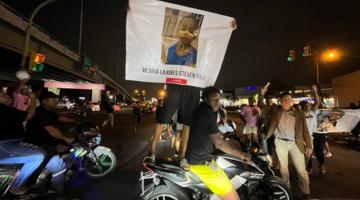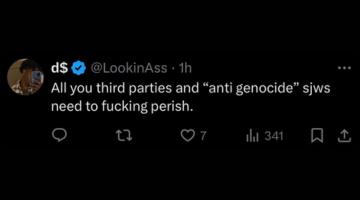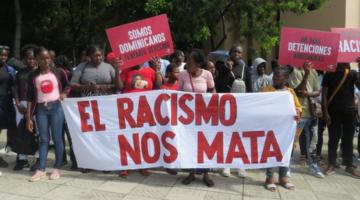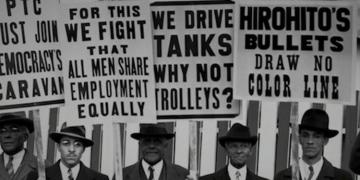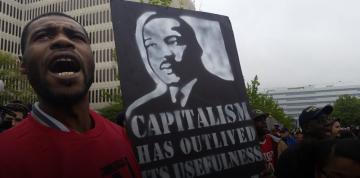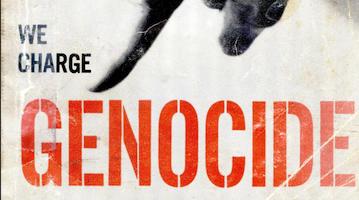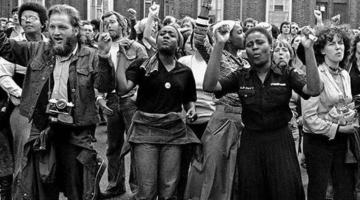At the heart of health disparities is antiblackness, a social code that renders Black people disposable.
“In Brazil the virus is far more lethal to Blacks than it is for whites.”
In spite of Covid-19’s destructive capacity, in the U.S. and in Brazil antiblackness is the ultimate facilitator of preventable death. The pandemic only exacerbates social and institutional patterns that consistently devalue the lives of Black people. Such patterns are not incidental or temporary, but rather are the very foundation of modern empire-states. Because antiblackness establishes the value of life – who lives and who dies – it sets up the conditions within which the pandemic advances and breaks havoc. While it is known that underlying medical conditions increase the chances of one’s death once the virus infects a person, such conditions are a function of social codes and institutional practices. Antiblackness is certainly not the only social code related to underlying medical conditions, but it is a central one. We often hear the term “health disparities” as an explanation for vulnerable social groups’ greater susceptibility to disease, lack of available health care, and preventable death. Yet at the heart of such disparities is antiblackness: a social code that, because it is based on a scale of humanity that renders Black people disposable, impacts them singularly and disproportionately. Antiblackness causes and naturalizes Black death.
On April 8, 2020, the Centers for Disease Control and Prevention (C.D.C.) released a study on people who were hospitalized from the coronavirus during the month of March. Considering a subset of 178 adult patients, the study found that 89.3 percent of them had one or more underlying conditions. The most frequent were the following: hypertension (49.7 percent), obesity (48.3 percent), chronic lung disease (34.6 percent), diabetes mellitus (28.3 percent), and cardiovascular disease (27.8 percent). What is evident in the C.D.C. report is that Covid-19 is the most devastating among Black people. In hospitalizations due to the coronavirus among those on whom there were race/ethnicity data, Blacks were by far the most disproportionately represented, and thus the most impacted: they comprised 33.1 percent, whereas Whites were 45 percent, Hispanics 8.1 percent, Asians 5.5 percent, and 0.3 percent were American Indian/Alaskan Native.[1]
“Covid-19 is the most devastating among Black people.”
It can be surmised from this data that in the U.S., Black people are most likely to experience underlying conditions, and thus most likely to suffer the worst consequences of the pandemic. (We hesitate to state that Black people are the most likely to be hospitalized, as the C.D.C. data suggest, because for them treatment and access to health care are historically deficient. Accordingly, it would be more accurate to affirm that hospitalization and death rates for Black people, due to patterns of social exclusion, are consistently underestimated.) The problem is amplified in cities where Blacks are either a majority or a large minority. For example, in Milwaukee, Chicago, and New Orleans, Black people experience 70 to 80 percent of all Covid-19-related deaths. To put this in another way: the greater the proportion of Black people in a city, the worst the outcome of the pandemic will be; conversely, the smaller the proportion of Black people in a city, the greater will be the chances of controlling the pandemic. Thus, it is not only the presence of Black people that is correlated with the most devastating traits of the pandemic; the absence of Black people seems to be a predictor of how well a city or region will do. The states of Washington, Oregon, and California, without majority Black cities, are doing relatively well in terms of hospitalizations and deaths caused by the virus.[2]
Similar patterns are already evident in Brazil, where the pandemic is only now beginning to show signs of its spread. Even though the first official cases of infection were of relatively affluent White people who had access to health care and tests, it is now apparent that Blacks, which in Brazil correspond to pretos and pardos, constituting 54 percent of the population, are the most severely affected. In other words, the pandemic is quickly spreading, from the privileged neighborhoods to disadvantaged areas where people are segregated away from the country’s infrastructure, including quality health care. Currently, whereas Black people are 23.1 percent of all hospitalizations due to Covid-19-related symptoms, they are 32.8 percent of deaths caused by the virus. The contrast to Whites is clear: whereas they are 73.9 percent of those hospitalized due to the coronavirus, they are 64.5 percent of those who die from it. The virus is far more lethal to Blacks than it is for whites.
“The absence of Black people seems to be a predictor of how well a city or region will do in the epidemic.”
These data bring to the surface mutually-reinforcing aspects of antiblackness. Black people have less access to hospitals and effective care. As in the U.S., Brazil is highly segregated, and Black people consistently live in areas that are more violent, bereft of urban infrastructure such as sewage, piped water, trash, and transportation services, where quality public services and access to healthy food are absent, closer to environmental toxins, with high concentration of unemployment, and disproportionately dependent on the informal economy. Housing in those areas is scares and expensive; households are markedly denser, with several family members sharing small spaces. Social distancing in these conditions is not only difficult, but it also cripples the income of households that overwhelmingly rely economically on being in public spaces, often crowded ones, selling goods and performing services.
So the hospitalization numbers are reflections of the constitutive antiblack patterns of residential hypersegregation, which in turn determines access to health care. Black people in Brazil are 67 percent of all those who depend exclusively on the public health care system, which has been severely defunded by the current federal administration. Similar to the U.S., Black people in Brazil are the majority among those with diabetes, tuberculosis, hypertension, and chronic kidney disease, all underlying conditions that increase the likelihood of Covid-19’s lethality. As the pandemic advances, it is expected that the proportion of Black people’s hospitalizations and deaths will only increase. [3]
The 1951 Civil Rights Congress denunciation of genocide in the U.S. provides a useful diasporic framework to reflect on this current moment, marked by Covid-19 and how it intersects and actualizes a myriad of processes of antiblack social exclusion.[4] Encompassing not only residential segregation and blocked access to health care, but also discriminatory policing, punitive schooling, industrial incarceration, and widespread unemployment – all of which reveal Black people’s unique condition of social death that often leads to physical death – the concept of antiblack genocide forces us to recognize the ways in which Black lives continue to not matter. When the presidents of Brazil and the U.S. signal recommendations that go against the advice of epidemiologists, they only reinforce long-term patters of antiblack genocide that far exceed their most ludicrous and murderous impulses.
“Black people in Brazil are 67 percent of all those who depend exclusively on the public health care system.”
To oppose antiblack genocide is a must, and urgent. At the forefront of the fight against antiblack genocide, autonomous organizations such as React or Die! in Salvador know exactly what to do. Drawing on long term work in prisons and Black neighborhoods, when the country’s authorities were pathetically vacillating on the appropriate measures, they provide basic cleaning supplies, food, and assistance to incarcerated women and men, and the elderly.[5] The Network of Communities and Movements Against State Violence instantly mobilized to provide basic foods to vulnerable Black women in favelas.[6] Cooperative Jackson in Mississippi immediately started using their arduously-acquired production capacity to manufacture masks for those most affected by the pandemic.[7] In their unflinching and immediate actions, these and many other Black autonomous collectives are informed by a long tradition of diasporic interventions that recognizes the uniqueness of Black people’s multiple vulnerabilities.
To fight against the devastating effects of Covid-19 is to relearn, adapt, and apply the lessons from the diasporic Black campaigns focusing on police abuse and state terror, nutrition and food security, schooling, the elimination of domestic pests, sickle-cell anemia, Aids/HIV, domestic and sexual violence, LGBTQ phobia, incarceration, assistance and transportation for the elderly, exposure to environmental toxins, residential hypersegregation, and many other facets of antiblack genocide. To come to terms with antiblackness is to recognize that the pandemic intensifies social patterns of exclusion and death that fundamentally impact Black people disproportionately. We stress fundamentally because such patterns, rooted in a social unconscious that constantly reinforces the correspondence between being and not being Black, structure empire-states with a high presence of Black people and a past in slavery. In the U.S. and in Brazil, antiblackness is at the core of the country’s social and ontological makeup. Covid-19’s lethality is as much about the virus’s craftiness as it is about antiblackness as a social encryption that determines who lives and who dies. Antiblackness is an underlying condition that makes the pandemic all the more devastating.
Notes and Links
[1] https://www.cdc.gov/mmwr/volumes/69/wr/mm6915e3.htm#F2_down
[2] https://www.nytimes.com/2020/04/08/opinion/coronavirus-black-cities.html?action=click&module=RelatedLinks&pgtype=Article
[3] https://www1.folha.uol.com.br/cotidiano/2020/04/coronavirus-e-mais-letal-entre-negros-no-brasil-apontam-dados-da-saude.shtml
[4]
Patterson, William. We Charge Genocide: The Historic Petition to the United Nations for Relief for a Crime of the United States government against the Negro People. New York: Civil Rights Congress, 1951.
[5] https://g1.globo.com/ba/bahia/noticia/2020/04/10/organizacao-distribui-itens-de-higiene-e-promove-trabalho-educativo-sobre-o-coronavirus-em-unidades-prisionais-de-salvador.ghtml
[6] https://www.vakinha.com.br/vaquinha/doando-esperanca-ajuda-nas-atividades-da-rede-contra-violencia-2019
[7] https://cooperationjackson.org/
João Costa Vargas works at the University of California - Riverside. Ana Flauzina works at Universidade Federal da Bahia (Federal University of Bahia). In 2017 they co-edited a book in Brazil called, Motim: Horizontes do genocidio antinegro na diaspora (Uprising: Horizons of antiblack genocide in the Diaspora).
COMMENTS?
Please join the conversation on Black Agenda Report's Facebook page at http://facebook.com/blackagendareport
Or, you can comment by emailing us at comments@blackagendareport.com

